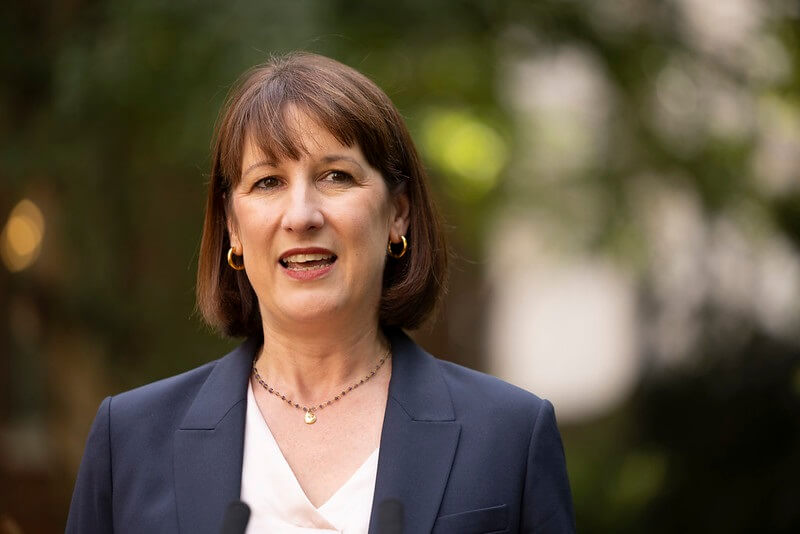The Autumn Budget is fast approaching and with a new government at the helm, some big changes are expected. But what should homeowners, landlords and first-time buyers prepare for? We find out…
 Chancellor Rachel Reeves is set to deliver her inaugural Budget on Wednesday 30 October – but what announcements, if any, are likely to impact homeowners?
Chancellor Rachel Reeves is set to deliver her inaugural Budget on Wednesday 30 October – but what announcements, if any, are likely to impact homeowners?
In the lead up to the first budget since Labour came to power, there has been much speculation and rumour about capital gains tax (CGT) increases which will impact buy-to-let landlords and investors.
Meanwhile, one of the party’s election manifesto promises was to introduce the Freedom to Buy scheme for first-time buyers. Will we finally see these proposals come to fruition?
We take a look at how the Budget may impact homeowners and what potential changes are on property experts’ wish lists.
Stamp duty: Will there be relief for buyers?
At present, first-time buyers are exempt from stamp duty on up to £425,000 of their property’s price. This threshold was increased from £300,000 to £425,000 in the mini-budget in 2022 as a temporary measure. But it is set to be reversed again in April 2025.
For those moving home, stamp duty applies frpm £250,000 – but under the same rules applied in the mini-budget, this will revert to £125,000 in April 2025,
With a new government in place, is there a chance these tax thresholds could be frozen?
A survey by David Wilson Homes of over 200 UK homeowners revealed that 76% support a review of Stamp Duty thresholds, with 32% strongly in favour. Meanwhile, Benham and Reeves also polled first-time buyers, of whom 67% were hoping for a stamp duty holiday.
Yet despite pressure on the government to freeze the thresholds at their current level – reports suggest Rachel Reeves will go ahead with the changes as planned.
Paula Higgins, chief executive of the HomeOwners Alliance, said: “These changes will make it even harder for people to buy their first home if first-time stamp duty is cut back to £300,000.
“In this Budget we’re calling on the government to scrap stamp duty altogether. Over the last decade of campaigning there have been as many tweaks to the stamp duty land tax as there have been new housing ministers.
“This fruitless fiddling has done little to address the fundamental problem that stamp duty is a tax on homeownership that’s a major obstacle to the housing market functioning properly.”
Freedom to Buy: Will there be more help for first-time buyers?
One of Labour’s election pledges was to enhance the Mortgage Guarantee Scheme, an initiative created by the Conservative government to help first-time buyers access low deposit mortgages.
The scheme was to be rebranded as the Freedom to Buy scheme and improved but, as yet, there has been no information.
Higgins said: “Few details have been released on how it will work. We hope the Budget will flesh this out and provide more information on how the Freedom to Buy scheme will work.”
There are also hopes the Chancellor will provide another boost to first-time buyers by making improvements to the Lifetime ISA (LISA) scheme.
The savings plan allows first-time buyers to save up to £4,000 a year, tax free, and with a 25% government bonus. But there is currently an outdated penalty.
Higgins said: “By removing the outdated 6.25% LISA withdrawal fine for people buying a home above the current £450,000 price limit – a threshold that hasn’t changed since 2017 – more people would have confidence to save into the scheme.
“Londoners are denied access to the scheme with the average house price now reaching £520k. The government needs to find a way to make sure these schemes keep up with house price reality and people wanting to use their savings to buy a home aren’t penalised.”
Capital gains tax (CGT): Will it be increased?
The speculation around Rachel Reeves’ plans for capital gains tax (CGT) has been rife in the lead up to the Budget. Much of the rumour has been supporting the view the Chancellor will hike CGT.
If CGT were to increase, it would impact buy-to-let landlords and property investors as the tax applies to second properties – not your main residence.
A survey by AJ Bell found over a quarter of advisers had seen a rise in CGT queries with a fifth seeing an increase in the number of clients looking so sell assets and realise gains before the Budget.
There has also been a rise in the number of landlords, in September, moving their properties to more tax efficient limited companies.
Higgins said whilst it was not good for landlords, increasing the tax not be disastrous for all homeowners.
“Many landlords have already started selling buy-to-let properties in anticipation of these predicted changes,” she said, “with Capital Economics forecasting a major exodus of rental properties over the next 10 years.
“In our view, this is not all bad. A million new homes available to purchase will help a substantial number of first-time buyers achieve their dream of homeownership.”














